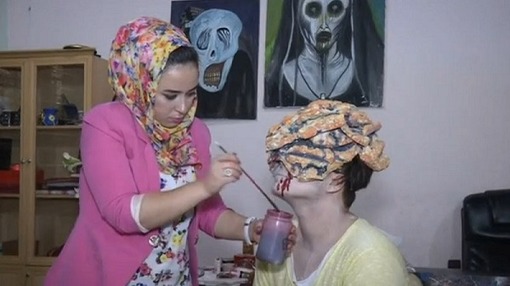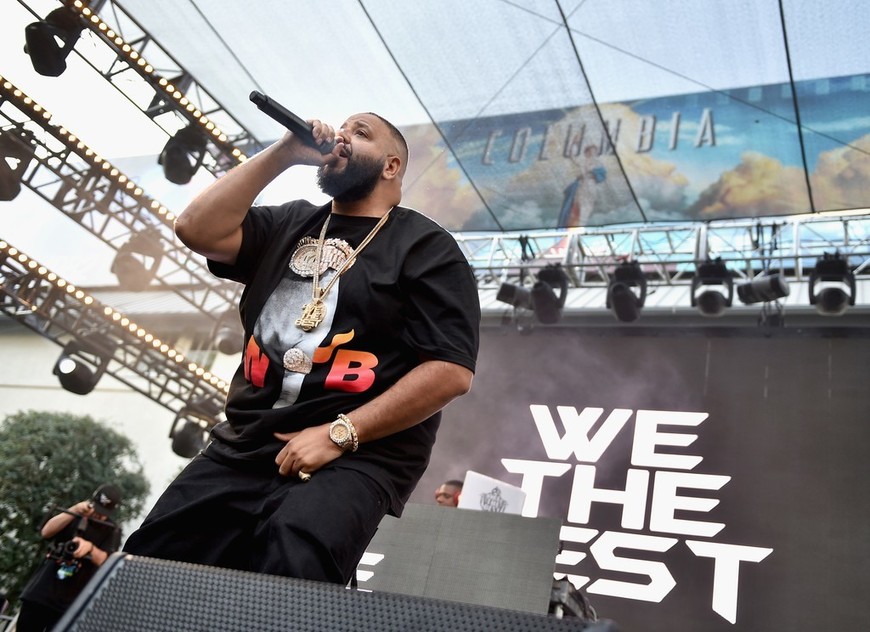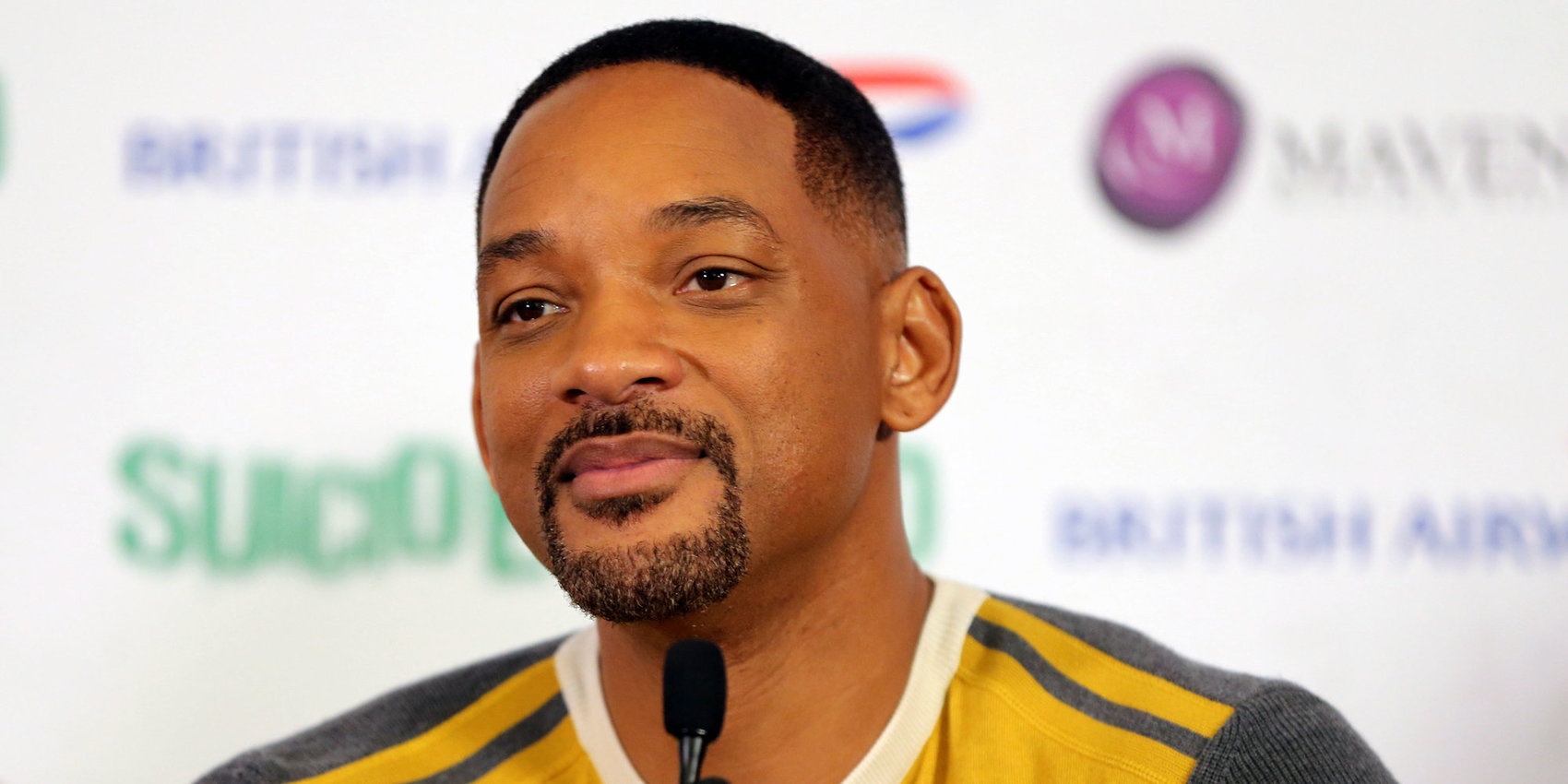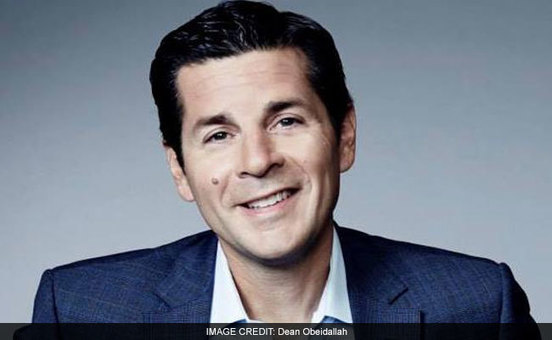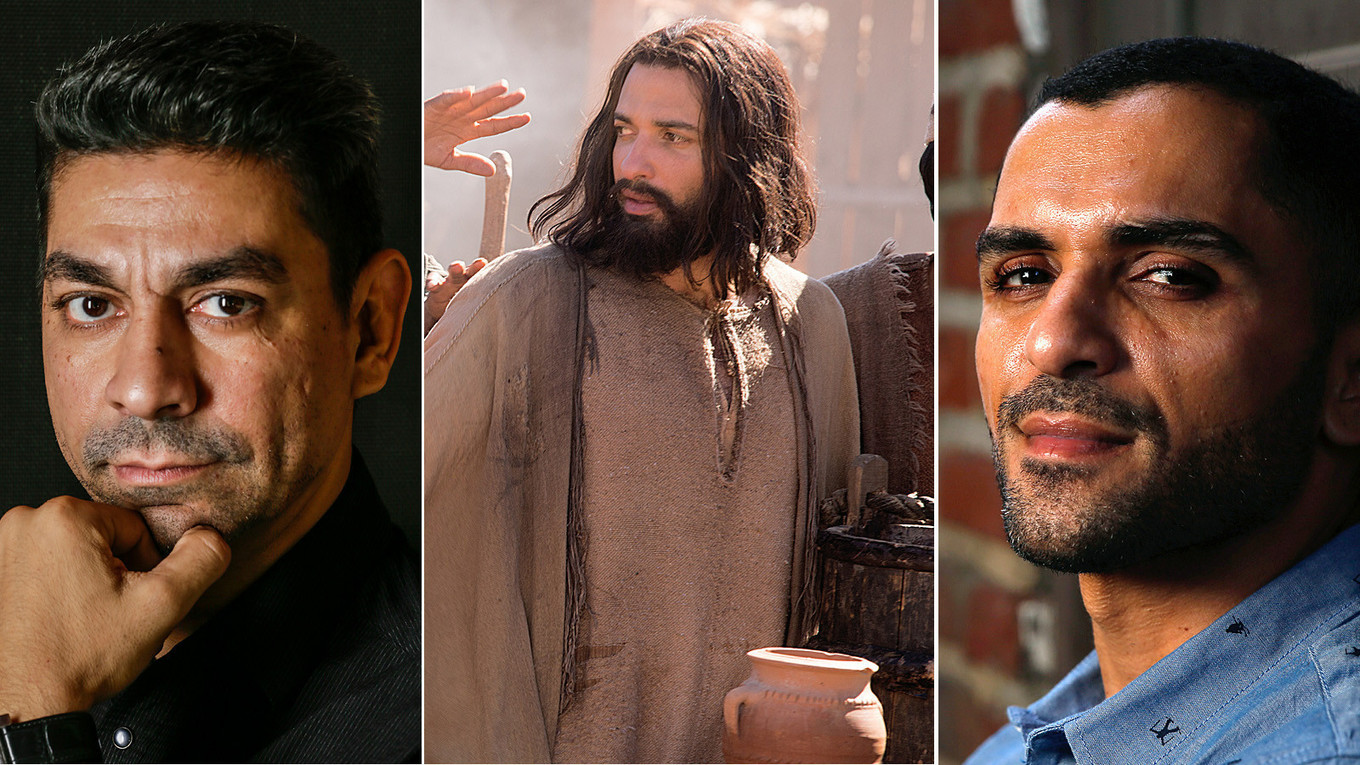
Jeffrey Fleishman
LA Times
When revolution swept Egypt in 2011, Ayman Samman, who had moved to America and hired a manager, fretted in the tranquil hills of Burbank about his acting career.
“After the Arab Spring actually Hollywood stopped writing roles for terrorists and that was really scary for me,” Samman, a Cairo native and the son of an imam, quipped in his latest stand-up comedy skit. “But luckily ISIS came along and I was like cha-ching. One man’s ISIS is another man’s guest star appearance on NBC’s hot new drama ‘Blindspot.’ ”
That humor cuts many ways but at its core is the typecasting Middle Eastern actors encounter in an age of Islamic radicalism and anti-immigrant fervor. Films and television shows have often unleashed wild-eyed fanatics plotting in the shadows and shouting, “Allahu Akbar,” or “God is great,” before blowing themselves up. But Samman, who appeared in Clint Eastwood’s “American Sniper,” has sensed a bit more subtlety and depth these days in scripts portraying Muslims.
He recently turned down a role he considered too stereotypical. “The part was for a guy who gives a bomb vest to a suicide bomber. It was very clichéd. I’m not interested in that,” he said. “But I did audition for the role of a foreign minister type that was very reflective of current politics. And in ‘Blindspot,’ I played a CIA informant who went rogue. It was very accurate and symbolic of how U.S foreign policy creates monsters.”
Samman and other Arab actors living in Los Angeles navigate disparate worlds. They keep abreast of the upheaval in their homelands while seeking parts that challenge America’s perceptions of the Middle East. Their ambitions brush against the tumult of global politics and the carnage of terrorist attacks that have ignited nationalist and populist zeal in the U.S. and Europe. They have learned to temper frustration and take advantage of more layered roles.
Few actors of Middle East lineage in the last decade have had the range of roles of Haaz Sleiman, who was a tart-tongued gay nurse in Showtime’s “Nurse Jackie”; Jesus Christ in “Killing Jesus,” an adaptation from the Bill O’Reilly and Martin Dugard book that aired on the National Geographic Channel; and an artist in “Dorfman in Love,” set in Los Angeles. Conservative Muslims in the U.S. and abroad criticized him for playing a homosexual and conservative Christians questioned why a man raised in Islam was cast to play Jesus.
“The bigger the movies you’re in, the chances are better at getting more diverse roles,” said Sleiman, a Lebanese American who received strong reviews as an immigrant drummer in Tom McCarthy’s acclaimed “The Visitor” in 2007. “It’s moving in the right direction for Arab actors but very slowly. Look at African Americans. It took them forever to move ahead. Arabs are the new blacks. We took their place as they moved up.”
He added that with his portrayal of Mo-Mo De La Cruz on ‘Nurse Jackie’ he wanted to “show Muslims in a different light. But there are still stereotypes,” he said. “The networks can perpetuate that, a kind of fear against Arabs that sells.”
Despite globalization, minority actors finding cross-cultural success are rare even as movies such as the “Furious” franchise have made billions of dollars with multiracial casts. Actors, especially those from Africa and Arab states, often contend with Western screenwriters and studios that have reduced a complex world to cursory and at times racist story lines that seldom differentiate between a Shiite or a Sunni Muslim, much less between a Pakistani or a Kuwaiti. That dilemma was one reason Samman produced, wrote and acted in “Toppled,” a short film about the fall of a dictator.
After more than a decade of conflict in Afghanistan and Iraq, U.S. audiences, perhaps as much as Arab actors, appear to have grown weary of terror and war. With the exception of “American Sniper,” which grossed nearly $550 million worldwide, Iraq war films have not been big successes at the box office. Movies about Islamic terrorism tend to do less well, including “The Reluctant Fundamentalist,” which starred Riz Ahmed and Liev Schreiber and grossed more than $2.1 million. Many tales that deal directly with terrorism, such as “Homeland” and “The Blacklist,” come from television.
*
Hollywood has portrayed Arabs as villains and schemers for generations, from “The Sheik” in 1921 to Steven Spielberg’s “Raiders of the Lost Ark” to Disney’s “Aladdin.” Other minorities, including Indians, have also been fitted into constraining frames. This made for sharp comedy on Aziz Ansari’s Netflix series “Master of None” when Ansari asks, “Why can’t there be a Pradeep just once who’s like an architect or he designs mittens or does one of the jobs Bradley Cooper’s characters do in movies?”
The urbane, Egyptian actor Omar Sharif gained international prominence in the 1960s by starring in films such as “Lawrence of Arabia,” “Doctor Zhivago,” and “Funny Girl” with Barbra Streisand. No Arab actor has since reached that stature. In fact, Hollywood films, most notably Lionsgate’s effects-laden, $140-million “Gods of Egypt,” have been criticized for casting white actors to play Arabs, which would be akin to the Saudi royal family standing in for America’s Founding Fathers.
But Judy Henderson, a member of the Casting Society of America and casting director for Showtime’s “Homeland,” has seen a slight multicultural shift: “I have noticed characters are becoming more diverse. Our industry is trying to show America as it is today. I’ve noticed this in the last few years, especially in TV sitcoms…. For so long our country didn’t understand the Middle East. We lived in a cocoon.”
Screenwriters can only “write so many ‘Allahu Akbar’ scripts. They can’t keep getting away with it,” said Sammy Sheik, who quit Alexandria University in Egypt more than a decade ago and has appeared in the political comedy “Charlie Wilson’s War” and the war film “Lone Survivor.” He also had a role in “Homeland,” criticized by some artists and writers as Islamophobic. But Sheik said: “My character was a community organizer, not a bad guy. The scripts for the shows I was in were terrific. After that I felt like an equal to bigger name actors.”
Sheik arrived in Los Angeles after taking acting classes and busing tables in New York. He sent out 100 head shots to agents and got 10 calls back. “That would never happen today,” he said. “The characters I auditioned for were no good. But I realized how good it was for me. I got into casting offices. Every day lots of Caucasian guys would be sitting outside offices waiting. But I got right in.”
He laughed.
“I was even typecast as a Latino guy,” he said, “but I couldn’t salsa to save my life.”
*
Sheik played the insurgent sniper who is Chris Kyle’s (Cooper) nemesis in “American Sniper.” He is a character actor in America but more of a leading man type in Egypt. He works in Dubai, Lebanon, Jordan and South Africa, and recently shot a murder mystery in Vienna. Despite his versatility many of the parts he’s offered are Arab-based, including three of his most recent: A diplomat serial killer, an Iraqi translator for U.S. troops and an immigrant driver who falls in love with a Texan in what he described as “My Big Fat Greek Wedding, Egyptian-style.”
“But the roles are definitely getting more complex,” he said. “Right now, I’m playing an American soldier of Arab descent on ‘NCIS: Los Angeles.’ ”
The son of an imam and antiquities lawyer in the government of Egyptian President Hosni Mubarak, who was overthrown in 2011, Samman is accustomed to typecasting from all sides. He arrived in the U.S. in 1998 after his heavy metal band was accused of devil worship by Islamists.
“I wanted to be a rock star,” he said. “I moved to Chicago and joined the Emerald Lizard band. It didn’t work out. I acted in a small film called ‘The Arab,’ a satire playing on stereotypes. I felt natural acting.”
He settled in Los Angeles in 2009 and auditioned for Ben Affleck’s “Argo,” about the Iran hostage crisis. “Pretty much every Middle East actor in L.A. was in that audition,” he said. He didn’t get the part. But, like Sheik, Samman’s profile broadened when he was cast as a father and insurgent in “American Sniper.”
“I called Egypt and told my mom, ‘I just booked a movie with Clint Eastwood.’ My mom said, ‘Who is she?’” he said. “The part didn’t give me a big leap, but I got different caliber roles after that. It opened a lot of doors and was a great conversation piece. It makes your faith stronger in your dream. It’s a very intense experience to be an immigrant. It’s psychologically traumatic. But it also ignited a lot of creative ideas.”
A role Samman recently auditioned for spoke to prejudices faced by many Arabs in America. He read for the part of a driver of Middle Eastern heritage whose limo is hit by a car driven by a Homeland Security agent. The police see it was the agent’s fault but allegiances and national sentiments take hold and the limo driver faces deportation after living in the U.S. for 20 years.
“I thought that was a great comment on things,” Samman said.
Source: www.latimes.com



